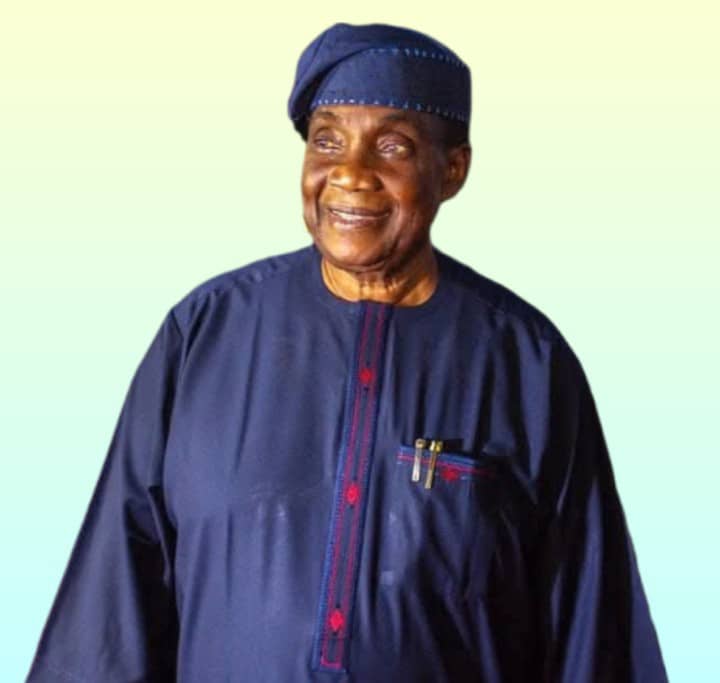By; BAYO AKAMO, Ibadan Former Minister of Power and Steel, Elder Wole Oyelese on Wednesday, said that full and practical execution of the S
By; BAYO AKAMO, Ibadan
Former Minister of Power and Steel, Elder Wole Oyelese on Wednesday, said that full and practical execution of the Supreme Court judgment on Local Government Autonomy is the only way the Renewed Hope Agenda can be genuinely felt by Nigerians at the grassroots.
Elder Oyelese who stated this while speaking as a veteran local government administrator called on President Tinubu to ensure full and practical execution of the Supreme Court judgment.
According to the former Chairman of Egbeda local government in Oyo State Local Government Autonomy is “the lifeblood of rural development and the surest way to restore citizens’ confidence in governance”.
Elder Oyelese pointed out stressed that the July 2024 Supreme Court judgment that ordered direct disbursement of allocations from the Federation Account to the 774 Local Government Councils and prohibited the use of caretaker committees was “a long-awaited victory for the people.
“Section 7(1) of the 1999 Constitution guarantees a system of local government by democratically elected councils. That provision was designed to make government accessible and accountable to the people”, he said.
The former Minister added, “Therefore, the full implementation of the Supreme Court judgment will not only deepen democracy but will also ignite development at the level where it is most visible, the grassroots.
” Mr. President has a historic opportunity to write his name in gold. The execution of the Supreme Court judgment on local government autonomy will be remembered as the true beginning of the Renewed Hope for the Nigerian people”
Tasking President Tinubu to lead by example in ensuring the immediate and total enforcement of the Supreme Court judgment across the federation, Elder Oyelese
lamented how the system has been reduced to a shadow of itself.
” It is disheartening that a chairman elected by the people must apply for approval before repairing a culvert or building a classroom. That defeats the essence of democracy”.
He emphasized that most projects attributed to the local governments are executed by contractors unfamiliar with the communities, creating capital flight and denying local artisans and youths the economic benefits that should accompany development.
Elder Oyelese said, ” between 1991 and 1993, when local government administrators were given full control of their councils, the impact was immediately visible”, saying
“Those were the years when local government autonomy truly worked. Councils constructed roads, built markets, and provided boreholes and health centres. Rural economies thrived, and the people could see where their taxes and federal allocations went”.
The former Minister stressed that
” today, many local government chairmen have become spectators in the affairs of their councils unable to voice the concerns of their communities or implement projects that reflect local priorities.
Without singling out any state or administration, Elder Oyelese said while some states such as Jigawa and Lagos have already begun releasing allocations directly to the local councils in line with the Court’s judgment, others are still lagging behind.
“This is not about confrontation; it is about restoration. If we must renew hope, we must start from where people feel it most, their villages, their communities, their markets, and their schools. Mr President has demonstrated enough of political Will to convince Nigerians that if he really wants this done, he knows what to do and how to do it.”
Stressing that unless local government funds are allowed to flow directly to the communities, the economy at the grassroots will remain stunted, and no meaningful government impact can be felt.
“When money meant for local communities is trapped in state bureaucracy, it kills small businesses, slows rural development, and weakens citizens’ faith in democracy. The poorest of our people pay the price”.
Reiterating his resolve to remain a mouthpiece for the grassroots, saying his advocacy is driven not by politics but by compassion for the people he once governed closely,
” I have lived among the people, shared their burdens, and understood their aspirations. I know how much difference a functioning local government can make in their daily lives. That is why I speak, not against any person or administration, but for the people whose voices are being drowned by bureaucracy”.




COMMENTS